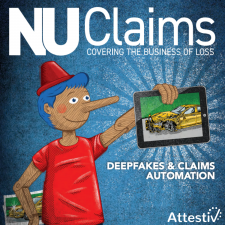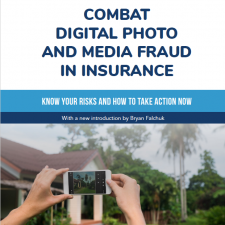
Over the past few years, AI-based technologies have been driving digital innovation in the insurance sector in areas such as digital fraud detection. However, the tools that detect signs of fraud, such as altered digital media, are often run offline due to intensive processing requirements. Within insurance Special Investigation Units (SIU), where unusual or suspicious claims are sent for further analysis tools can run on a random case basis or on an as-needed basis to detect if the digital media being used for an insurance record contains fraud or other anomalies. While this approach can track down some fraud, it is unable to scale to handle hundreds of millions, if not billions, of media files used for insurance claims annually. Furthermore, the approach may not be proactive enough to prevent payment of fraudulent claims.
What types of solutions can be used to enable large scale, real-time fraud prevention?
It turns out there are a couple of ways to go about this:
- Real-time fingerprinting at the point of capture for photos and videos that validates the contents, time/date and location of each media file when it is processed
- Real-time AI analysis that occurs inline with every transaction that analyzes and scores each media file on the basis of fraud likelihood
While the former can be used when redesigning processes like claims, the latter can apply to any existing process and to photos captured from any source. In tandem, both solutions provide the highest degree of fraud protection. Imagine data from a claim landing at its destination with an initial fraud analysis attached, regardless of where the data originated.
Real-time fraud analysis
By utilizing GPUs in a scalable cloud environment, real-time fraud analysis becomes a reality. At Attestiv, we have seen over an order of magnitude reduction in processing time for media fraud detection using GPUs. That’s enough latency reduction to enable the analysis to run real-time, without affecting the user experience, but spotting more fraud and stopping it in its tracks. The result? A fraud protection solution that covers every transaction, proactively.
Learn more about AI solutions for insurance
AWS and NVIDIA recently hosted a panel featuring a variety of experts in the InsureTech sector, including Attestiv, Cape Analytics, and Root Insurance, who offered their perspectives on where we are today in terms of AI and the insurance sector: what’s working, what’s not, and what are the most pressing issues we need to acknowledge and solve.
Watch the recording here and let us know what you think.






